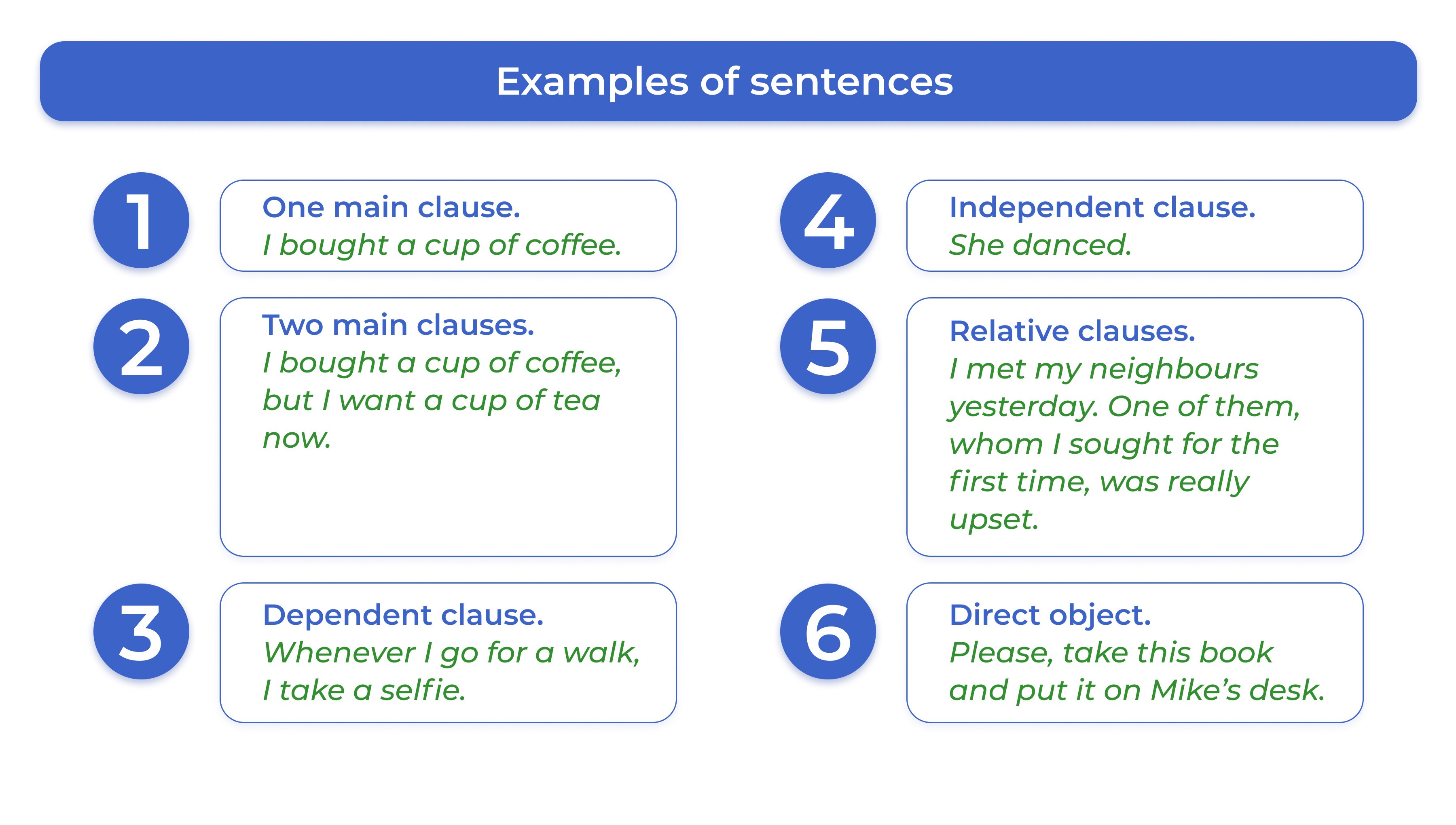How To Learn English at Home: 15 Tips & Ways
Are you interested in the question How to learn english at home? In this article you will find 18 ways to learn English at home. Click and explore!
Feb. 7, 2023

Are you interested in the question How to learn English grammar? In this article you will find simple steps and tips for learning English grammar. Click and explore!
The English language is now the most widely spoken language in the world, with over 1.5 billion speakers. It’s the primary language used in international communication and is the language of business, science, and technology. The English language is the language of the world, so it is time for learning it. How can you really do it? You have to start by studying grammar first. Let's look at the five main steps for learning English and improving grammar.
There are nine basic parts of speech in English. Every part of speech had its own role and position in sentences, that’s why is important to know and recognize them. Following are nine basic parts of speech in English.
|
Part of speech |
Their function |
Examples of words |
Examples of sentences |
|
Noun |
Thing, person or place |
Car, shirt, apple, boy, girl, driver, work, home, store etc. |
This is my car. / He is a driver. / I am at work now. |
|
Pronoun |
Takes the place of a noun |
I, me, you, he, she, it, they, we, us etc. |
I like it. / We are walking. / She lives there. / Tell us about the holidays. / They are my friends. |
|
Verb |
Describes an action or a state of being |
Eat, drink, think, talk, go, dance, walk etc. |
What are you doing? / I drink water now. / I drive the car. / Dance all night. |
|
Adjective |
Describes a noun or pronoun |
This, that, smart, happy, funny, good etc. |
That girl is my friend. / She is a good driver. / He told us a funny joke. / I am a happy person. |
|
Article |
A special kind of adjective |
A, an, the |
I met a girl. / I bought a TV at home. / The dinner was great. / Please, take me an umbrella. |
|
Adverb |
Tells when/ how/ where/ to what extent |
Tomorrow, here, perfectly, completely |
She does it perfectly. / I clean it completely. / Here I bought coffee. / We will go for a walk tomorrow. |
|
Preposition |
Forms a phrase with nouns and pronouns |
A, at, as, about, by, of, out, on, in, to, near, from, into, with etc. |
His door is near mine. / I am from England. / Let’s talk about grammar. / Put it on the table. |
|
Conjunction |
Joins two sentences or clauses in one sentence |
And, or, but, when, also, either, neither, except, still, then etc. |
Me and you. / Thank you, I am still not hungry. / I want a pizza or a burger. |
|
Interjection |
Means reaction to something or shows a strong feeling |
Hey! Wow! Yeah! Oh! Oh no! Aww! Eww! Hmm! Shh! Stop! No! Ouch! Oops! |
Aww, it is so cute! / Hey, how are you? / Wow, she is so pretty! / Oh no, I forgot my keys! / Oops, I am so sorry! / Hmm, it sounds interesting. / Ouch, my hand! |
Parts of speech are the categories that words are grouped into based on their grammatical function within a sentence. Understanding the different parts of speech is important in order to understand how sentences are constructed to convey meaning.
It is impossible to speak a foreign language without learning new vocabulary. Here are some tips for effective learning of new words. Make paper flashcards or use them digitally. Once you find some words you don’t know, start doing your flashcards. Write the word in English on the front and its translation in your native language on the back of the paper. Now repeat the words using these cards. After you memorize some words, it's better to get rid of these cards. It is important to constantly update your vocabulary with new words.
Another tip is to take vocabulary quizzes. If you are bored of the cards or lists with new words, try a quiz. You can take them online just by using your phone, and many of them are free.
Of course, you have to use new vocabulary words in conversation or writing, and repeating will help you to memorise new words faster.
The topic of sentence structure in English is the key to learning proper grammar of this language. In English, there are four types of sentences: simple, compound, complex, and compound-complex.
Simple sentence contains an independent clause.
Example: I like tea.
Compound sentence include: independent clause + coordinating conjunction (or semicolon) + independent clause.
For example: I like tea, but Mike prefers coffee.
Complex sentence includes three parts too: independent clause + subordinating conjunction (or relative pronoun) + dependent clause.
Example of complex sentence: I like tea because it contains more caffeine.
And the most difficult type of sentences is compound-complex. Its structure includes: independent clause + subordinating conjunction + dependent clause + coordinating conjunction + independent clause.
Example: I like tea because it contains more caffeine, so I drink it when I need more energy.
A clause is a part of every complete sentence. It is a group of words that has subject and predicate. See in the table below four types of clauses and examples of sentences to get better grammar.
|
No. |
Type of clause |
How it looks schematically |
Clauses words |
|
1 |
Independent or Main clause |
Subject + Verb = Complete thought |
And, for, nor, or, but, yet |
|
2 |
Dependent or Subordinate clause |
Subordinate Conjunctive + Subject + Verb = Incomplete thought |
Because, before, after, although as, even if, once |
|
3 |
Relative or Adjective clause |
Starts with the relative pronoun |
Who, whose, whom, which, that |
|
4 |
Noun clauses |
It’s a dependent clause that works as a noun |
Acting as a subject, object or predicate nominative |

Step 5: Learn English Grammar Tenses.
There are twelve tenses in English: simple, continuous, perfect and perfect continuous forms of past, present and future tenses. Below we specified the main differences between each of the tenses.
|
12 English Tenses |
Past |
Present |
Future |
|
Simple |
infinitive + ed or for irregular verbs past simple form of verb ex.: I broke |
infinitive he / she / it: infinitive + s |
will + infinitive
|
|
Continuous |
was / were + infinitive + ing |
verb- to be (am/are/is) + infinitive + ing |
will + be + infinitive + ing
|
|
Perfect |
had + infinitive + ed or for irregular verbs had + Past Participle form of verb ex.: he had gone |
have / has + infinitive + ed or for irregular verbs have / has + Past Participle form of verb ex.: he has gone |
will + have+ infinitive + ed or for irregular verbs will + have + Past Participle form of verb ex.: he will have gone |
|
Perfect continuous |
had + been + infinitive + ing |
have / has + been + infinitive + ing |
will + have+ been + infinitive + ing |
We wrote more about the tenses in this article: What are the tenses of verbs
If you have already gone through all these steps at some point, but insufficient knowledge of grammar interferes you from communicating or working, look for these English grammar tips:
It is also important to be patient with yourself and to remember that learning a language is a process that takes time and effort. With the right approach and resources, anyone can master English grammar.
There are many ways to improve grammar and we have described them all in this article. It is important to remember that grammar is the set of rules that govern the way words are used in sentences to convey meaning. Although, by starting the lessons you will see that English grammar is logic and simple for understanding. Just use our list of tips for easier learning and fixing your progress. Remember, that regular practice will get you the results you want!